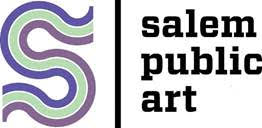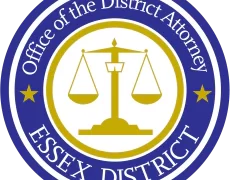SALEM – Mayor Kimberley Driscoll today announced that as part of the City of Salem’s American Rescue Plan Act (ARPA) funding allocations, over $3 million is being directed to an array of programs and projects focused on improving public health, mental health, and diversity, equity, and inclusion efforts in the community. Previously announced, close to $600,000 in additional ARPA funds are being targeted toward food security efforts, a major component of the City’s health-related work, bringing the total amount of ARPA funds allocated to the health-focused causes to over $3.6 million.
“For our allocations of federal ARPA funds we are working to prioritize those areas of our community most deeply impacted by the COVID-19 pandemic,” said Mayor Kim Driscoll. “Some of the most critical challenges we face are related to public and mental health, and our ongoing work around equity and inclusion. This $3 million funding announcement builds on our previous ARPA allocations, continuing our efforts to recover from the pandemic and ensure a stronger community moving forward. I’m grateful to the members of the ARPA stakeholder group, our community partners, our federal delegation who made ARPA possible, and the City staff who have all helped advance this important work.”
North Shore Community Health Center capital grant – $1,145,000
This award, the largest single non-municipal grant award in the City’s ARPA program to date, will fund the construction of the expanded capacity behavioral health services department at the new Salem Family Health Center (SFHC) being constructed in the El Centro building at the intersection of Lafayette Street and Derby Street. In the years prior to the pandemic many individuals with mental illness and behavioral health challenges were unable to access the care they required, a situation only exacerbated by COVID-19. A recent survey identified that one in three Massachusetts residents over the age of 19 reported needing behavioral health care for themselves or a close relative. That growing demand is seen locally by SFHC, with increases in behavioral and mental health care needs increasing by between 14% and 16% depending on the issue. The new SFHC behavioral health services department, which will be made possible by this grant award, will allow for the significant expansion of SFHC’s services, including family and pediatric psychiatry and the addition of more treatment rooms.
Plummer Youth Promise capital grant – $430,000
This funding award will provide funding to help Plummer Youth Promise advance Phase 1 of its Rebuilding Families Campus project. This phase consists of the construction of a new building that is trauma-informed, dignified, and intentionally designed to drive at-risk youth toward family, stability, and success. The new building, located on the campus of the current building, will consist of single occupancy bedrooms and bathrooms that support privacy and healing, ample personal storage for the precious personal items each youth arrives with, and welcoming, culturally competent space conducive to family visits and relationship-building. This facility will set a standard of excellence that aligns with the groundbreaking clinical work that Plummer does every day.
COVID-19 response – $386,388
These funds have been directed toward direct COVID-19 response measures and include such expenditures as free rapid antigen tests for Salem residents and vaccination clinics for residents and public school students.
Salem Equity Grant program – $250,000
This new City grant program will provide operational support grants to local nonprofit organizations and agencies that provide support and services for historically underserved and underrepresented communities. Eligible entities include, but are not limited to immigrant support organizations, organizations for the advocacy and awareness of underserved and underrepresented communities, domestic violence survivor support organizations, etc. Entities whose mission directly serves these populations or who exclusively serve these populations will be given preference in applications. Eligible costs include outreach, communications, transportation, programmatic and event support, technical support, legal services, materials, and similar needs. The maximum grant award for any one entity is $25,000. To see additional guidelines or apply, visit www.salemma.gov/recovery.
Salem Mental Health Access Grant program – $250,000
This new City grant program will provide operational support grants to nonprofit service organizations and entities that provide opportunities for socialization, support, recovery, mental health, and mental health-adjacent programming for Salem residents. Eligible entities include, but are not limited to, youth sports organizations, community support organizations, addiction support organizations, nonprofit providers, clinicians, or providers, and others. Eligible costs include outreach, communications, transportation, facility/event space rental, virtual meeting room costs, or other ancillary costs associated with mental health and mental health-adjacent programming for Salem residents. The maximum grant award for any one entity is $25,000. To see additional guidelines or apply, visit www.salemma.gov/recovery.
Community-Wide AED Deployment – $200,000
Working through the Salem Fire Department, the City will acquire and deploy 75 automated external defibrillators (AEDs), to help those experiencing sudden cardiac arrest, at publicly accessible locations, including business, restaurants, places of assembly, and attractions, throughout the community. An additional 12 AED units would be procured for the Department for use in vehicles and at stations. All units would include signage and installation, as well as provisioning with Narcan. Eligible locations for a deployment will be determined based on capacity and type and will be contacted directly by the Salem Fire Department.
HAWC Emergency Shelter capital grant – $185,000
Healing Abuse Working for Change (HAWC) has provided support, shelter, advocacy, resources, and recovery services to survivors of domestic violence and their children since 1978. In furtherance of their mission, HAWC operates an emergency shelter site, providing a welcoming and safe home for those they serve. This capital grant will allow HAWC to carry out major and long-needed renovations to upgrade the facility’s kitchen spaces and its client bathrooms, all of which have not been renovated in over a decade. The funds will also help with the temporary relocation of shelter clients during the work. This project will enable HAWC to continue to serve their clients with dignity and with shelter.
City Equity Audit & Gateways for Growth Challenge Grant – $72,500
These funds will be matched with a $40,000 state grant to carry out a citywide equity audit, one of the Diversity, Equity, and Inclusion Goals identified in the City’s Race Equity Action Plan. The audit will guide Salem’s inclusion work from a data-driven approach and align it with the Massachusetts Municipal DEI Coalition’s DEI Guide. It will help the City identify existing barriers to including historically underrepresented communities in municipal processes. This will work additionally include an action plan for the recruitment and retention of a more representative municipal workforce. The allocation also includes matching funds for a regional $25,000 grant being sought from the American Immigration Council and Welcoming America to improve immigrant inclusion through technical assistance culminating in a customized economic research report on the contribution of immigrants to the regional economy and a regional immigrant welcoming plan.
SOS Health Access units – $45,000
The City is acquiring and installing touch-free dispenser units for the public to access healthcare products including COVID test kits, Narcan, masks, contraception, and menstrual products. Two units will be installed at City Hall and City Hall Annex, and two units will be located at sites in the community that are still to be identified.
City translation and interpreter – $30,000
Additional funding to support either personnel or a vendor to provide added Spanish and other language translation of City documents and websites and real-time interpretation at certain City board and committee meetings.
Translation of pandemic-related public health information – $1,739
Expended funds to translate public health information, including vaccination eligibility, clinic details, testing updates, and resource information into Spanish during the pandemic.
About ARPA in Salem
ARPA provides much needed funds to respond to and recover from the COVID-19 pandemic and the negative economic affects that came with it. Salem has taken a thoughtful approach to utilizing this funding and has worked intentionally with stakeholders to identify that will best aid our response and recovery efforts, ensure an equitable recovery, and make transformative, positive change in the many areas of concern that impact the lives and livelihoods of Salem residents. The City has announced major allocations of ARPA funds toward critical City capital needs (www.salemma.gov/recovery/news/city-salem-directs-arpa-funds-capital-needs), business and worker recovery measures (www.salemma.gov/recovery/news/city-salem-directs-arpa-funds-business-and-workforce-recovery), transportation projects (www.salemma.gov/recovery/news/city-salem-directs-arpa-funds-transportation-needs), food security efforts (https://www.salemma.gov/recovery/news/city-salem-directs-arpa-funds-food-security), and affordable housing (https://www.salemma.gov/recovery/news/city-salem-directs-over-9-million-arpa-funds-affordable-housing). Find out more about ARPA in Salem at www.salemma.gov/recovery.






